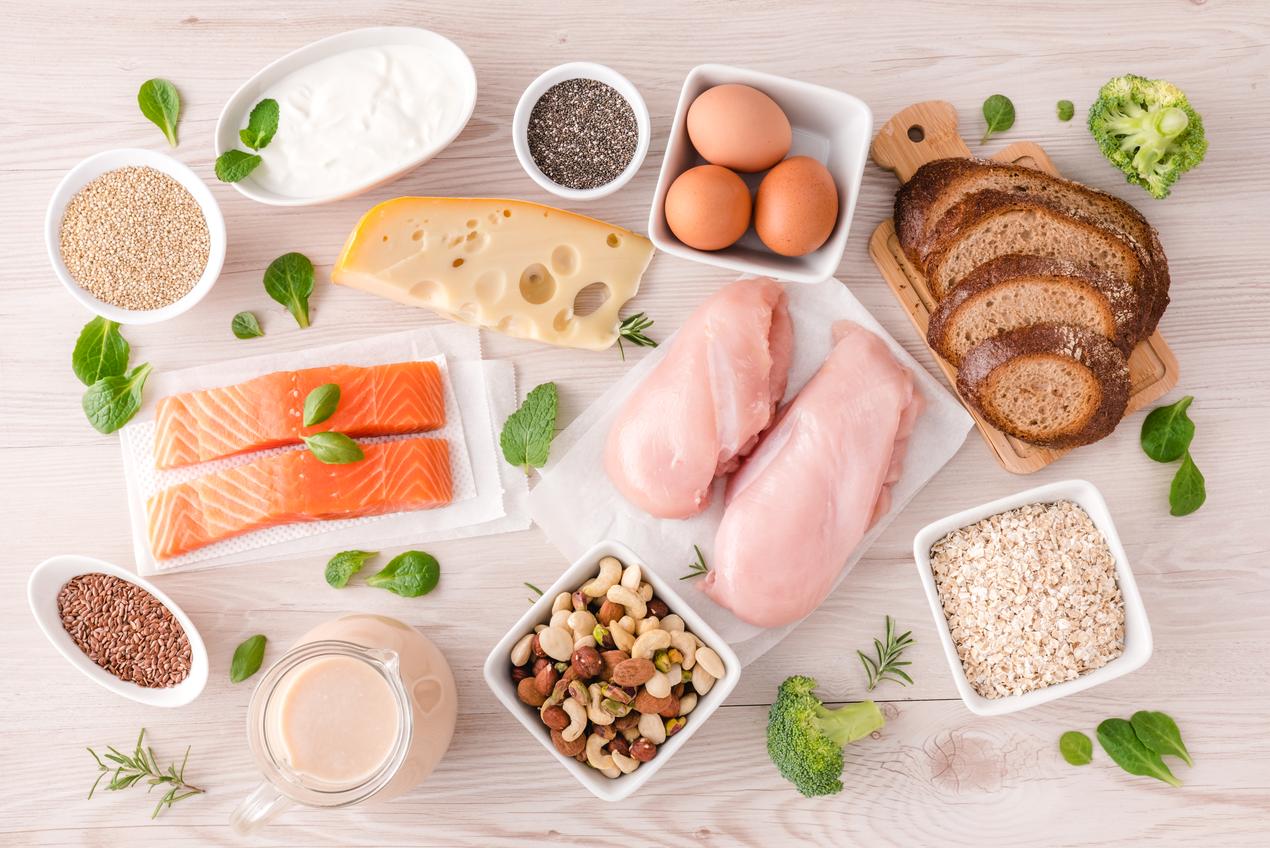Guide to Essential Vitamins and Minerals for Seniors
The importance of a balanced, nutrient-rich diet does not diminish with age. On the contrary, it becomes even more important for maintaining health and vitality. With aging, the body undergoes various physiological changes that affect how nutrients are absorbed and used. Here is a guide to essential vitamins and minerals for older adults to support their well-being and prevent common nutritional deficiencies.
Essential vitamins
Vitamin D
Vitamin D is essential for bone health in older people. It helps the body absorb calcium, thereby reducing the risk of osteoporosis and fractures. Older people often have reduced exposure to the sun, the main source of vitamin D. It is therefore recommended to consume foods enriched with vitamin D, such as milk, cereals and fatty fish. Vitamin D supplements may also be necessary after consultation with a healthcare professional.
Vitamin B12
Vitamin B12 plays a crucial role in the formation of red blood cells and the maintenance of nerve function. With age, the absorption of this vitamin may decrease, increasing the risk of anemia and neurological disorders. Food sources of B12 include meat, fish, eggs and dairy products. For those who have difficulty absorbing vitamin B12, supplements or injections prescribed by a doctor may be an effective solution.
Vitamin C
Vitamin C is a powerful antioxidant that supports the immune system and skin health. It also helps with wound healing and iron absorption. Citrus fruits, strawberries, peppers and green vegetables are excellent sources of vitamin C. Regular consumption of these foods can help maintain adequate levels of vitamin C, helping to prevent chronic diseases.
Vitamin E
Vitamin E acts as an antioxidant, protecting cells against damage caused by free radicals. It may also play a role in preventing cardiovascular disease and supporting cognitive health. Nuts, seeds, and vegetable oils are rich in vitamin E. Including these foods in the diet can help ensure adequate vitamin E intake.
Essential minerals
Crucial for maintaining strong bones and teeth, calcium is particularly important in the face of age-related decline in bone density. It is found abundantly in dairy products like milk, cheese, and yogurt, as well as leafy green vegetables like broccoli and kale. Fish like sardines, rich in calcium thanks to their edible bones, are also recommended. For those with insufficient dietary calcium intake, supplements may be considered to meet the recommended daily requirements.
As for magnesium, it plays an essential role in more than 300 enzymatic reactions in the body, including regulating muscle and nerve function, managing blood sugar, and maintaining bone health. Nuts, seeds, legumes like beans and lentils, and leafy green vegetables like spinach and cabbage are rich natural sources of magnesium. A balanced diet incorporating these foods can effectively prevent magnesium deficiency and support optimal health.
Furthermore, potassium is essential for heart function and fluid balance. It helps maintain healthy blood pressure and prevent strokes. Bananas, rich in potassium, as well as oranges, potatoes and spinach, are important natural sources of this essential mineral. Adequate potassium intake is especially crucial for older adults with hypertension, helping to manage their overall heart health.
Zinc is essential for a strong immune system, wound healing and protein synthesis in the body. Older adults may be at increased risk of zinc deficiency, which weakens their immune systems and increases susceptibility to infections. Food sources rich in zinc include lean meat like chicken and beef, seafood like oysters and shrimp, and legumes like chickpeas and lentils. Ensuring sufficient intake through a varied diet can help maintain good immune and overall health.
Practical tips for a nutrient-rich diet
- Dietary diversity: Adopting a varied and balanced diet is essential to obtain all the necessary nutrients. Include fruits, vegetables, lean proteins, dairy products and whole grains in daily meals.
- Supplements: Sometimes it can be difficult to get all the nutrients through food alone. In such cases, supplements can be helpful. However, it is important to consult a healthcare professional before starting any supplement to avoid drug interactions and overdoses.
- Hydration: Drinking enough water is crucial for overall health. Proper hydration helps with digestion, absorption of nutrients and elimination of waste.
- Avoid processed foods: Processed foods can be high in empty calories, sugar and salt, while being low in essential nutrients. It is best to focus on fresh, unprocessed foods.
Maintaining a diet rich in vitamins and minerals is crucial for the health and well-being of older adults. By understanding specific nutrient needs and adopting a varied and balanced diet, it is possible to prevent many nutritional deficiencies and promote a better quality of life. Most residences for the elderly offer a balanced food offering designed by professionals. Going to live in a residence allows you to obtain adequate food service adapted to your needs. Don't forget to regularly consult health professionals for personalized monitoring and advice tailored to your specific needs.








